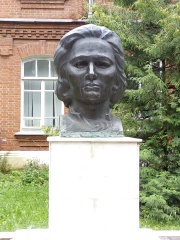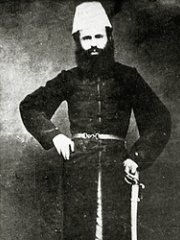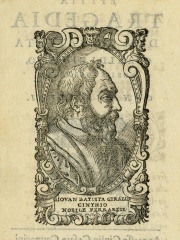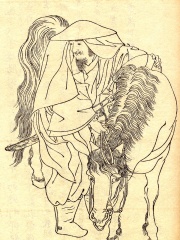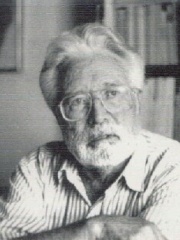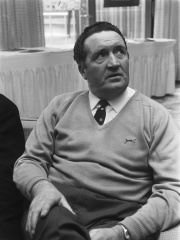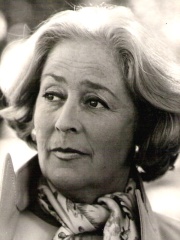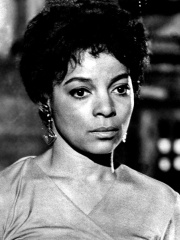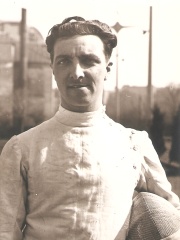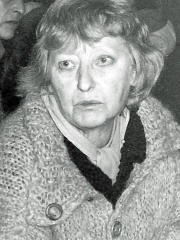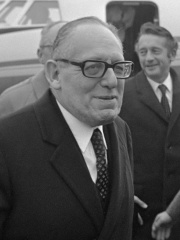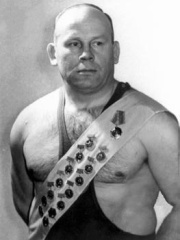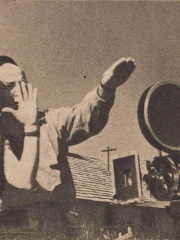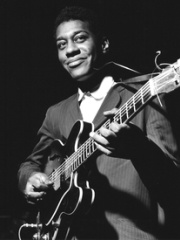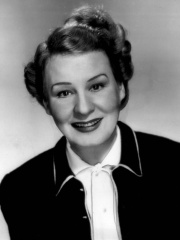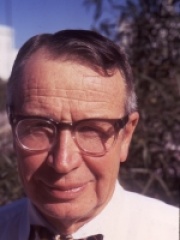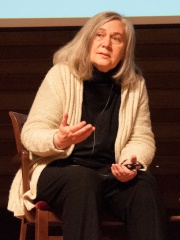WRITER
William Gaddis
1922 - 1998
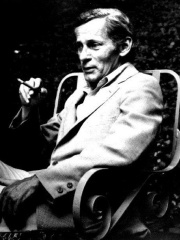
 William Gaddis
William Gaddis
William Thomas Gaddis Jr. (December 29, 1922 – December 16, 1998) was an American novelist. The first and longest of his five novels, The Recognitions, was named one of TIME magazine's 100 best novels from 1923 to 2005 and two others, J R and A Frolic of His Own, won the annual U.S. National Book Award for Fiction. A collection of his essays was published posthumously as The Rush for Second Place (2002). Read more on Wikipedia
His biography is available in 26 different languages on Wikipedia (up from 25 in 2024). William Gaddis is the 4,271st most popular writer (up from 4,362nd in 2024), the 6,330th most popular biography from United States (down from 5,828th in 2019) and the 481st most popular American Writer.
Memorability Metrics
Page views of William Gaddis by language
Among WRITERS
Among writers, William Gaddis ranks 4,271 out of 7,302. Before him are Sándor Weöres, Hadiya Davletshina, Lyuben Karavelov, Anne Tyler, Emmanuel Roblès, and Pauline Kael. After him are Samih al-Qasim, Thorkild Hansen, Margaret Weis, Giovanni Battista Giraldi, Orientius, and Ōtomo no Tabito.
Most Popular Writers in Wikipedia
Go to all RankingsSándor Weöres
1913 - 1989
HPI: 57.34
Rank: 4,265
Hadiya Davletshina
1905 - 1954
HPI: 57.34
Rank: 4,266
Lyuben Karavelov
1834 - 1879
HPI: 57.33
Rank: 4,267
Anne Tyler
1941 - Present
HPI: 57.33
Rank: 4,268
Emmanuel Roblès
1914 - 1995
HPI: 57.33
Rank: 4,269
Pauline Kael
1919 - 2001
HPI: 57.33
Rank: 4,270
William Gaddis
1922 - 1998
HPI: 57.32
Rank: 4,271
Samih al-Qasim
1939 - 2014
HPI: 57.31
Rank: 4,272
Thorkild Hansen
1927 - 1989
HPI: 57.31
Rank: 4,273
Margaret Weis
1948 - Present
HPI: 57.31
Rank: 4,274
Giovanni Battista Giraldi
1504 - 1574
HPI: 57.31
Rank: 4,275
Orientius
400 - 444
HPI: 57.31
Rank: 4,276
Ōtomo no Tabito
665 - 731
HPI: 57.31
Rank: 4,277
Contemporaries
Among people born in 1922, William Gaddis ranks 266. Before him are Jean Porter, Daniel Boulanger, Agustina Bessa-Luís, Võ Văn Kiệt, Juan Antonio Villacañas, and Jock Stein. After him are Károly Németh, Hal Clement, China Zorrilla, Leonel Brizola, Ruby Dee, and Rosalio José Castillo Lara. Among people deceased in 1998, William Gaddis ranks 191. Before him are Raquel Rastenni, Odette Bancilhon, André Bonin, Christiane Rochefort, Gene Autry, and Louis Hostin. After him are Mikio Oda, Marion Donovan, Manuel Álvarez, Maurice Schumann, Johannes Kotkas, and Wanda Jakubowska.
Others Born in 1922
Go to all RankingsJean Porter
ACTOR
1922 - 2018
HPI: 57.52
Rank: 260
Daniel Boulanger
WRITER
1922 - 2014
HPI: 57.51
Rank: 261
Agustina Bessa-Luís
WRITER
1922 - 2019
HPI: 57.46
Rank: 262
Võ Văn Kiệt
POLITICIAN
1922 - 2008
HPI: 57.45
Rank: 263
Juan Antonio Villacañas
WRITER
1922 - 2001
HPI: 57.40
Rank: 264
Jock Stein
SOCCER PLAYER
1922 - 1985
HPI: 57.39
Rank: 265
William Gaddis
WRITER
1922 - 1998
HPI: 57.32
Rank: 266
Károly Németh
POLITICIAN
1922 - 2008
HPI: 57.31
Rank: 267
Hal Clement
WRITER
1922 - 2003
HPI: 57.29
Rank: 268
China Zorrilla
ACTOR
1922 - 2014
HPI: 57.18
Rank: 269
Leonel Brizola
POLITICIAN
1922 - 2004
HPI: 57.17
Rank: 270
Ruby Dee
ACTOR
1922 - 2014
HPI: 57.15
Rank: 271
Rosalio José Castillo Lara
RELIGIOUS FIGURE
1922 - 2007
HPI: 57.15
Rank: 272
Others Deceased in 1998
Go to all RankingsRaquel Rastenni
SINGER
1915 - 1998
HPI: 57.57
Rank: 185
Odette Bancilhon
ASTRONOMER
1908 - 1998
HPI: 57.48
Rank: 186
André Bonin
ATHLETE
1909 - 1998
HPI: 57.44
Rank: 187
Christiane Rochefort
WRITER
1917 - 1998
HPI: 57.42
Rank: 188
Gene Autry
MUSICIAN
1907 - 1998
HPI: 57.39
Rank: 189
Louis Hostin
ATHLETE
1908 - 1998
HPI: 57.35
Rank: 190
William Gaddis
WRITER
1922 - 1998
HPI: 57.32
Rank: 191
Mikio Oda
ATHLETE
1905 - 1998
HPI: 57.32
Rank: 192
Marion Donovan
INVENTOR
1917 - 1998
HPI: 57.31
Rank: 193
Manuel Álvarez
SOCCER PLAYER
1928 - 1998
HPI: 57.27
Rank: 194
Maurice Schumann
WRITER
1911 - 1998
HPI: 57.26
Rank: 195
Johannes Kotkas
WRESTLER
1915 - 1998
HPI: 57.24
Rank: 196
Wanda Jakubowska
FILM DIRECTOR
1907 - 1998
HPI: 57.17
Rank: 197
In United States
Among people born in United States, William Gaddis ranks 6,331 out of 20,380. Before him are Anne Tyler (1941), Grant Green (1935), Carl Scarborough (1914), Pauline Kael (1919), Kathy Ellis (1946), and James Blake (1979). After him are Shirley Booth (1898), Tucker Carlson (1969), Melanie Martinez (1995), Charles Shyer (1951), Verne Troyer (1969), and Henry L. Giclas (1910).
Others born in United States
Go to all RankingsAnne Tyler
WRITER
1941 - Present
HPI: 57.33
Rank: 6,325
Grant Green
MUSICIAN
1935 - 1979
HPI: 57.33
Rank: 6,326
Carl Scarborough
RACING DRIVER
1914 - 1953
HPI: 57.33
Rank: 6,327
Pauline Kael
WRITER
1919 - 2001
HPI: 57.33
Rank: 6,328
Kathy Ellis
SWIMMER
1946 - Present
HPI: 57.33
Rank: 6,329
James Blake
TENNIS PLAYER
1979 - Present
HPI: 57.32
Rank: 6,330
William Gaddis
WRITER
1922 - 1998
HPI: 57.32
Rank: 6,331
Shirley Booth
ACTOR
1898 - 1992
HPI: 57.32
Rank: 6,332
Tucker Carlson
JOURNALIST
1969 - Present
HPI: 57.32
Rank: 6,333
Melanie Martinez
SINGER
1995 - Present
HPI: 57.32
Rank: 6,334
Charles Shyer
FILM DIRECTOR
1951 - 2024
HPI: 57.31
Rank: 6,335
Verne Troyer
ACTOR
1969 - 2018
HPI: 57.31
Rank: 6,336
Henry L. Giclas
ASTRONOMER
1910 - 2007
HPI: 57.31
Rank: 6,337
Among WRITERS In United States
Among writers born in United States, William Gaddis ranks 481. Before him are Tobias Wolff (1945), Robert Ettinger (1918), Glen A. Larson (1937), Marilynne Robinson (1943), Anne Tyler (1941), and Pauline Kael (1919). After him are Margaret Weis (1948), Hal Clement (1922), Philip Arthur Fisher (1907), Art Buchwald (1925), E. B. White (1899), and Julia Quinn (1970).
Tobias Wolff
1945 - Present
HPI: 57.43
Rank: 475
Robert Ettinger
1918 - 2011
HPI: 57.42
Rank: 476
Glen A. Larson
1937 - 2014
HPI: 57.39
Rank: 477
Marilynne Robinson
1943 - Present
HPI: 57.38
Rank: 478
Anne Tyler
1941 - Present
HPI: 57.33
Rank: 479
Pauline Kael
1919 - 2001
HPI: 57.33
Rank: 480
William Gaddis
1922 - 1998
HPI: 57.32
Rank: 481
Margaret Weis
1948 - Present
HPI: 57.31
Rank: 482
Hal Clement
1922 - 2003
HPI: 57.29
Rank: 483
Philip Arthur Fisher
1907 - 2004
HPI: 57.26
Rank: 484
Art Buchwald
1925 - 2007
HPI: 57.26
Rank: 485
E. B. White
1899 - 1985
HPI: 57.25
Rank: 486
Julia Quinn
1970 - Present
HPI: 57.25
Rank: 487

